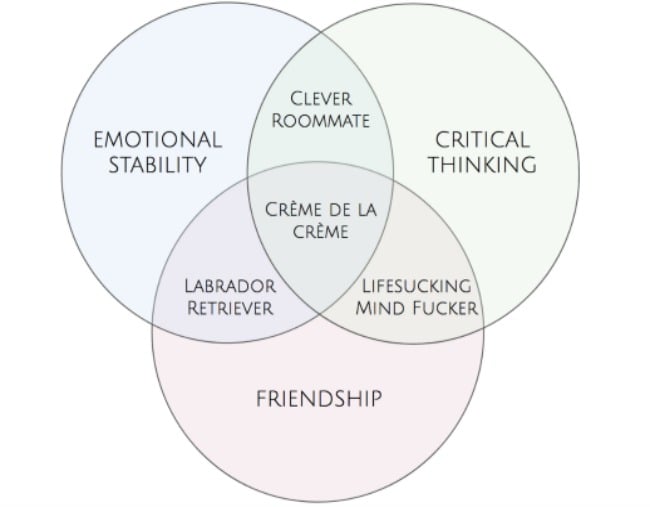Too many people — especially women my age — harbour ridiculous “check lists” of demands in a partner that don’t matter.
Tall. High-income. Nice car. Nice apartment — and good decor. Attractive. Smart. Nice. Not crazy. Good family. Good hair. Good nose. Works out. Drinks what I drink. Likes the same music. Has the same hobbies. Travels. Does brunch on the weekend and trivia at night. Wants a golden retriever — and two kids…
Shit goes on.
Ladies, I love you, but these lists are ridiculous. We’re just creating obscene demands to distract ourselves from the real work of discerning what’s important. I’m not going to tell you what you should want. But I will suggest that we define it better.
When I think about what I want in a life partner, the questions I ask aren’t things like “what his earning potential?” but rather “what’s this guy gonna do when shit really hits the fan?” Because it will. And when it does, no amount of luxury vehicles or nice hair or good looks will do me much good.
Don’t get me wrong — I definitely have a physical “type” that I go for, but looks don’t matter that much in the long run. I’ve dated tall, short, skinny, fat, older, younger, good hair, no hair, and various states of balding. (I’ve also dated high income, low income, same religion, different religion… dudes with luxury cars, beaters, and interests in all kinds of music and hobbies — I don’t care.)
Because:


